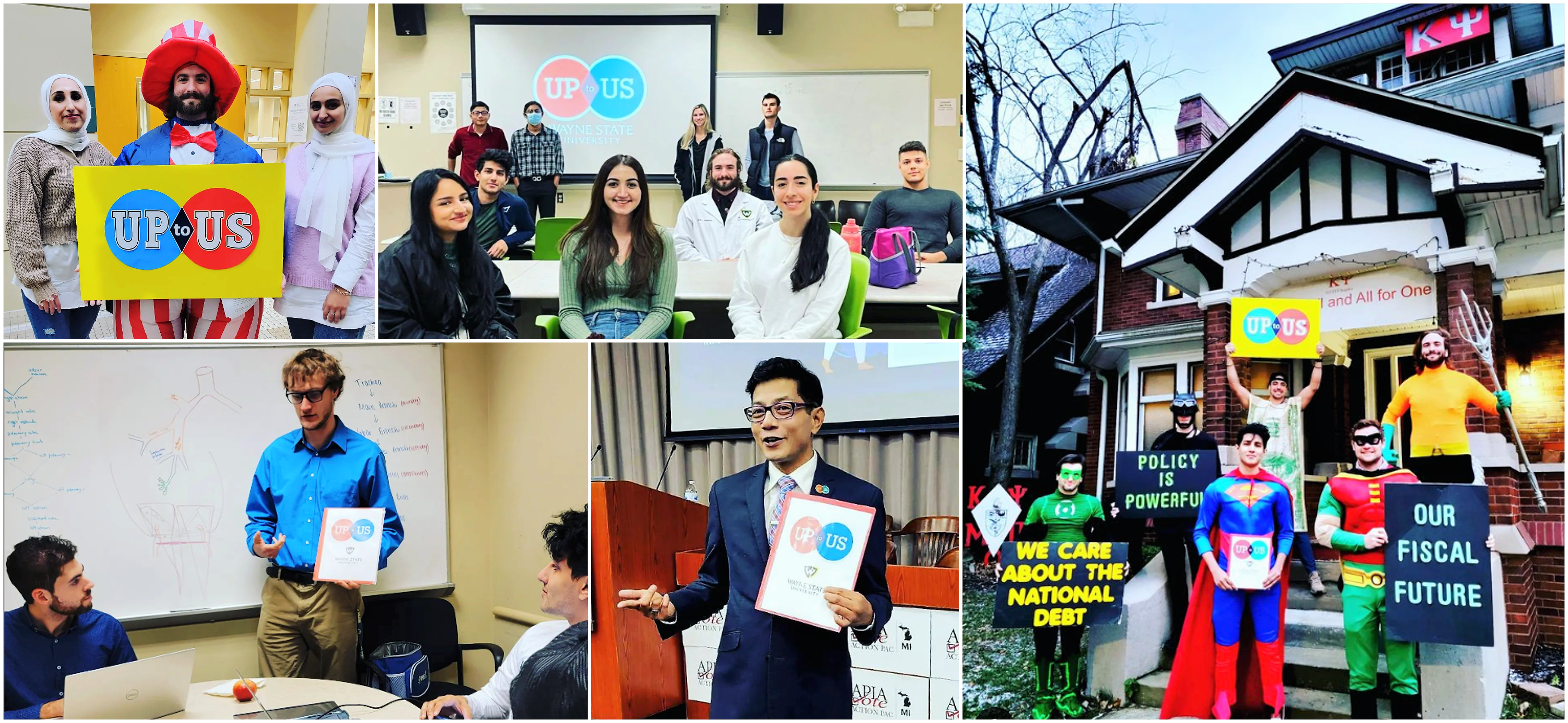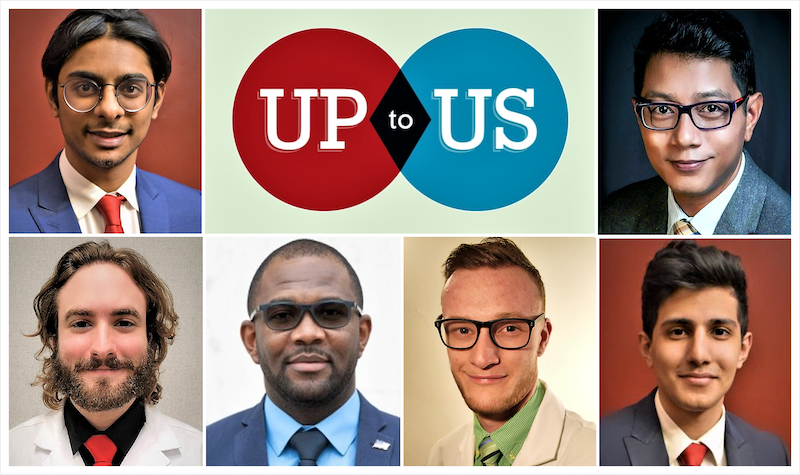WSU IPhO team takes second place in national Up to Us competition
Submitted by Wayne State's Industry Pharmacists Organization chapter

With the national debt surpassing $31 trillion, the next generation of American leaders is making its voice heard. On college campuses across the country, students have led innovative peer-to-peer campaigns as part of the annual Up to Us competition, raising awareness of our nation's fiscal challenges and advocating for solutions.
Wayne State University's Up to Us team placed second in the national competition with their integrated marketing campaign that focused on healthcare as a major driver of government spending and the importance of civic engagement and responsible fiscal policy.
The WSU Up to Us team was composed of members of the Wayne State chapter of the Industry Pharmacists Organization (IPhO) and they spent the last five months educating the community on the growing national debt and how healthcare plays a role in the economic future of the country.

Wayne State's team was led by IPhO President Joseph Paul Javier and their campaign engaged almost 2,000 people through day of action events, 900 individuals through various presentations, and contacted members of Congress 172 times. The team accomplished this by working with student organizations like APhA, SCOPA, and Kappa Psi Pharmaceutical Fraternity, as well as community organizations like APIA-Vote Michigan and the MiDems.
"We wanted our campaign to highlight the role that healthcare plays in ensuring a healthy nation and a healthy economy," said Javier. "Promoting the legislative priorities of pharmacy leadership organizations like the American Pharmacists Association and the Michigan Pharmacists Association were key to our campaign efforts. Advocating for legislation that not only makes healthcare accessible and equitable for all Americans, we made sure to highlight the important role that pharmacists have in maintaining the health and well-being of our citizens."
The Up to Us competition had the theme of Fostering a Fiscally Sustainable Outlook. The challenge was designed to encourage students to dig deeper into understanding the changes that policy makers and individuals need in order to produce a fiscally sustainable future. Teams focused on research tracks like political science/public policy, business/entrepreneurship, marketing/communications, and the STEM fields.
The top 10 finalists for the 2022-2023 Up to Us Competition were: Stony Brook University, Wayne State University, Howard University, Florida International University, Central Texas College, University of Notre Dame, Mount Mary University, St. Francis College, Jarvis Christian University, and Babson College.
Founded by the Peter G. Peterson Foundation in 2012, in partnership with Net Impact and the Clinton Global Initiative University (CGIU), Up to Us is a nonpartisan initiative that provides young civic leaders with the resources and training needed to advocate for a more prosperous and sustainable fiscal future.
About us
The Doctor of Pharmacy program at Wayne State University is a four-year curriculum in the heart of Detroit. Approximately 100 students are enrolled in each year of the program. WSU Applebaum information meetings for prospective students take place at 6 p.m. on the first Tuesday of each month. The application process for the Doctor of Pharmacy program begins each July.
An anchor in urban health care
The Eugene Applebaum College of Pharmacy and Health Sciences is built on more than 100 years of tradition and innovation in the heart of Detroit. We have grown deep roots in our city, harnessing its powerhouse hospital systems and community service organizations as vibrant, real-world training grounds for students, with an ongoing focus on social justice in health care. And our research at all levels - from undergraduates to veteran faculty members - translates into creative solutions for healthier communities.
Wayne State University is a premier urban research institution offering approximately 350 academic programs through 13 schools and colleges to nearly 24,000 students.